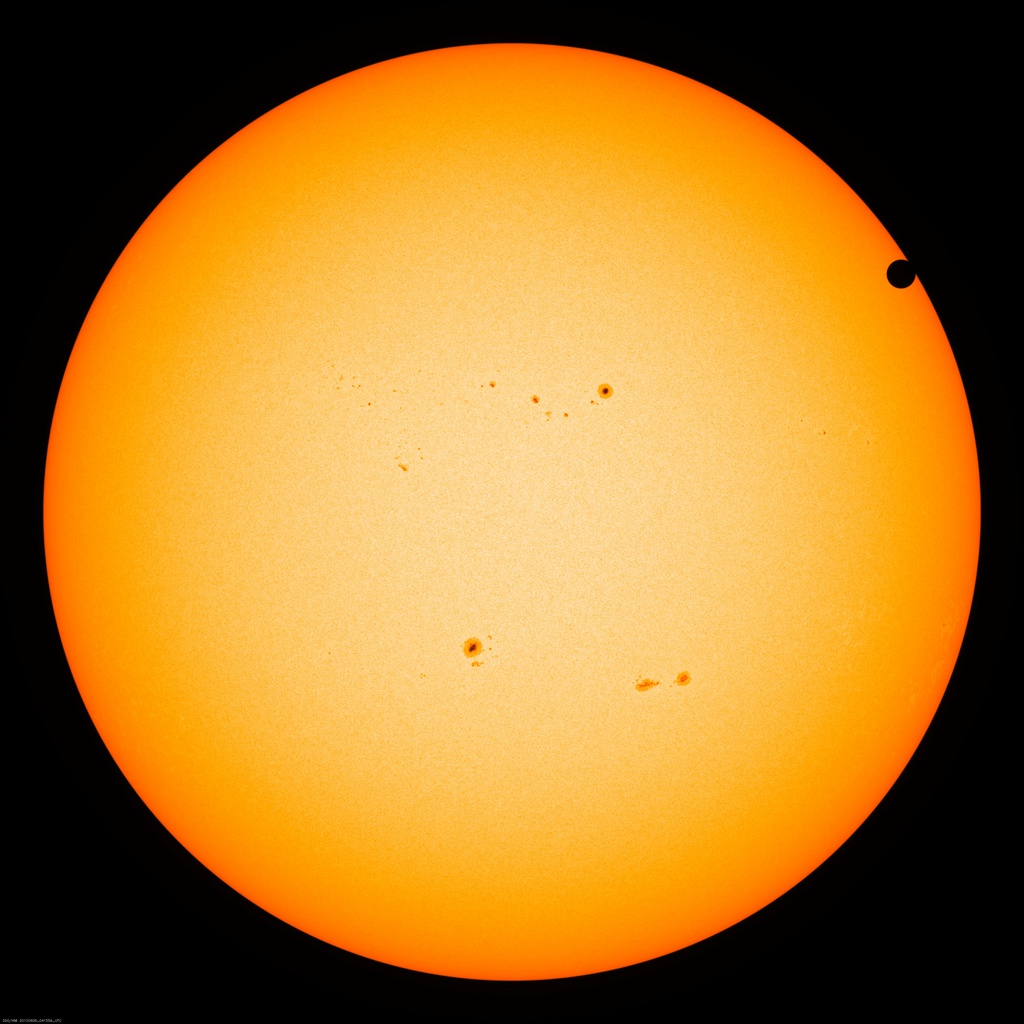Venus transit: A last-minute guide
Source: MSNBC
Thousands of scientists and skywatchers around the world have made detailed plans to monitor today's transit of Venus across the sun, but chances are that word of the last-in-a-lifetime event is just now sinking in for millions of just plain folks — so what's the big deal? And what's the best way to watch the transit?
We've had dozens of stories about Venus' day in the sun over the past few weeks, but for those of you who are just tuning in, here are the top 10 things to keep in mind about today's transit, whether your skies are sunny or completely socked in:
<snip>
3. Safety first: This is where I type out the bold-face warning that you should never gaze at the sun without proper eye protection. Sunglasses are not adequate. Neither are black plastic garbage bags, or film negatives. Unsafe viewing can damage your retinas. This video from "Astronomy Dave" Fuller explains the difference between proper and improper eye protection, not only for the transit, but for anytime you want to observe the sun:
<snip>
7. Find an astronomer: You'll have the best experience if you're with a group that includes a knowledgeable amateur or professional astronomer. Science centers and national parks are likely to be hotspots for transit-viewing parties. Your local astronomy club is probably partying it up as well. Check out this worldwide directory of astronomy clubs, or this listing from the Astronomical League. If nothing else, call up the physics department of the closest college or university and find out what's going on.
8. See it on the Web: I'm guessing that most transit-watchers will be getting at least some of their looks via the Internet, particularly if the weather is lousy. Here's a listing of the webcasts that'll be available, including msnbc.com's simulcast of NASA's coverage:
<snip>
Read more: http://cosmiclog.msnbc.msn.com/_news/2012/06/05/12056397-venus-transit-a-last-minute-guide
BumRushDaShow
(130,161 posts)Funny how many articles keep headlining it as being a "once" in a lifetime event when it really is a "twice" in a lifetime thing. ![]() I.e. the photos they show with all the articles were from that last time in 2004. At least this one says "last in a lifetime".
I.e. the photos they show with all the articles were from that last time in 2004. At least this one says "last in a lifetime".
onehandle
(51,122 posts)AtheistCrusader
(33,982 posts)rug
(82,333 posts)xocet
(3,875 posts)Where is the feed supposed to be on that site...? (Es scheint mir, dass es doch nicht da ist. Veilleicht habe ich etwas uebersehen. Bitte koennten Sie weiter erlaeutern.)
This link below is to a NASA page that offers multiple webcast options:
http://sunearthday.nasa.gov/2012/transit/webcast.php
rug
(82,333 posts)Here's the right one.
http://events.slooh.com/
(Although the other is interesting in its own right.)
xocet
(3,875 posts)Their about message is very interesting:
http://www.slooh.com/about.php
Roland99
(53,342 posts)Baclava
(12,047 posts)It's a sign

panzerfaust
(2,818 posts)
When the transit starts, Earth-orbiting Solar Dynamics Observatory will update the APOD image ~ every 15 minutes